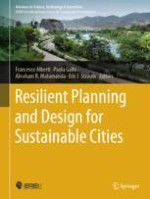2024 | OriginalPaper | Buchkapitel
Against the Wall: Reflections on Wandering and Precarity in South African Cities
verfasst von : Eric Nyembezi Makoni, Vuyiswa Letsoko
Erschienen in: Resilient Planning and Design for Sustainable Cities
Verlag: Springer Nature Switzerland
Aktivieren Sie unsere intelligente Suche, um passende Fachinhalte oder Patente zu finden.
Wählen Sie Textabschnitte aus um mit Künstlicher Intelligenz passenden Patente zu finden. powered by
Markieren Sie Textabschnitte, um KI-gestützt weitere passende Inhalte zu finden. powered by
